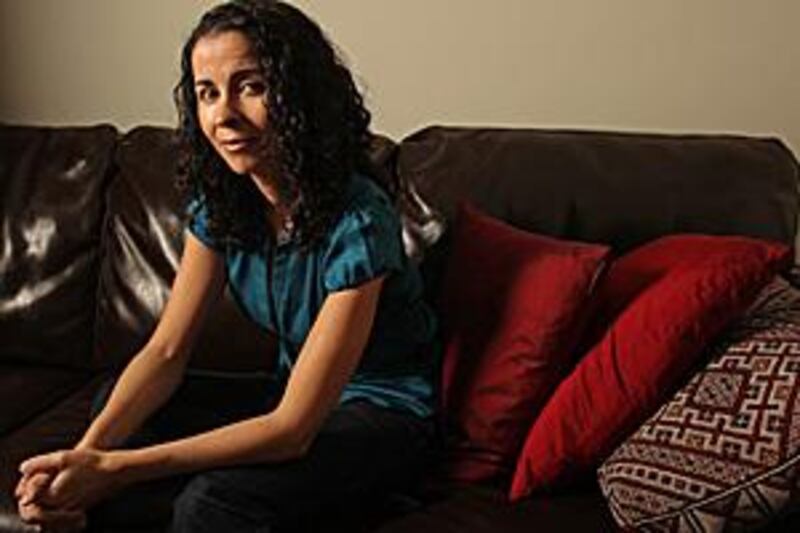RABAT // In the room where she writes, Laila Lalami keeps a small stone with the Arabic word for "nation" painted on one end and "foreigner" painted on the other. "But according to the root, you could also take it to mean 'outsider'," said Lalami, whose novel Secret Son comes out this month, speaking by telephone from her home in Santa Monica, California. That word describes Lalami, a Moroccan novelist living outside her native country and working outside its main literary vehicles, French and Arabic. Writing in English, she is crashing through linguistic barriers that have long hindered Moroccan authors from reaching a world audience - and winning critical acclaim in the process.
Secret Son, Lalami's second book, cements her place in the vanguard of a generation of Moroccan writers influenced less by the colonialism of the 20th century than by the globalisation of the 21st. Modern literature in Morocco blossomed during 20th-century French rule that introduced the novel and brought foreign writers to the country. Many settled in Tangier, for decades under international administration, drawn by its cocktail of nationalities and partying lifestyle.
"It was a cultural gateway," said Khalid Amine, professor of performance studies at the Abdelmalek Essaadi University in the nearby city of Tetouan. "Modernity came to Moroccan through Tangier." Tangier remained an artistic hub after Morocco gained independence in 1956. Moroccan writers mixed with sojourning foreigners such as Jean Genet, Tennessee Williams and William S Burroughs, and with the American writer Paul Bowles, who lived in Tangier from 1947 until his death in 1999.
It was Bowles who mentored a poor young Moroccan named Mohammed Choukri and translated his autobiographical For Bread Alone into English in 1973. Choukri became a star of Morocco's early literary scene. Some writers, including Choukri, wrote in Arabic. Others used French, a colonial legacy that still dominates much of Moroccan cultural life, business and education. "I grew up with books in the house," said Lalami, who developed a taste for writing as a child in the 1970s in Rabat, the capital. "Most bookstores carried children's literature in French, so when I started writing it was in French."
English came in high school and university. Armed with a grant from the British Council, Lalami decamped for postgraduate studies at University College London, eventually earning a doctorate in linguistics from the University of Southern California. In the midst of writing her dissertation, she decided to try her hand at composing fiction in English. "I felt that there was too much of a colonial relationship with French," she said. "It's used in Morocco to indicate social class and educational level - it's not neutral."
Secret Son tells the story of Youssef, a poor young Casablancan who discovers that the father he believed dead is very much alive, and a member of the country's glossy elite. Youssef embarks on a quest for identity in Casablanca's messy confluence of westernisation and conservative Islam, "with disastrous consequences", Lalami said. "Most of our problems emanate from the compromise between East and West, tradition and modernity, religion and secularism," said Mr Amine, from the Abdelmalek Essaadi University. "These are the main questions reflected in our arts."
"Globalisation is not just a concept for the average Moroccan, it's a reality," Lalami said. "If you are in Morocco, you see how much the rest of the world penetrates the country." Lalami has come of age as Morocco has opened economically, seeking to position itself as major tourist destination and regional hub of business and commerce. That puts her among a young generation of Moroccan artists who are both products and chroniclers of globalisation.
University reading lists are reflecting the change, said Mr Amine. "Ten years ago we taught almost exclusively French literature, but now students are reading Moroccan writers." Some critics have portrayed Lalami as an emerging national voice. Only some three per cent of books published in the US are translated foreign works. That makes Lalami one of a handful of Moroccan authors appearing in the language of globalisation.
"I am aware of an enormous responsibility, because many books written in English get translated into other languages," she said. But she is not interested in serving as "a spokesperson for any kind of idea about Morocco". "I just want readers to journey with the characters and get to know their lives." jthorne@thenational.ae





